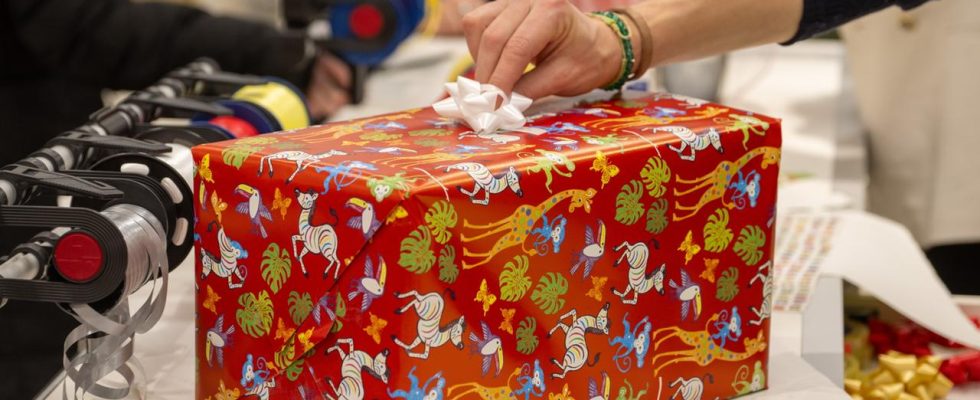Wrong size, wrong color, wrong brand? Or did the giver make a complete mistake? What you need to consider when exchanging Christmas presents.
Nothing can be done with individually tailored gifts. You have to keep the embarrassing photo book and the dubiously designed coffee mug with your name printed on it – or throw it away. Even goods that smell immediately after use cannot be exchanged, such as plastic, lingerie or unsuitable sex toys.
What is necessary for the exchange
Actually, the gift giver could exchange the bad purchase themselves. But can he still be trusted after the first failed attempt? So, to be on the safe side, the recipient does this themselves.
You may find it practical or tasteless: in many circles of friends it has become common practice to give the purchase documents as a gift. This reveals the price of the gift. This documents information about the value that is given to you and the stinginess or generosity of the giver. It also saves disappointed recipients from embarrassing negotiations with the donor. Because without proof of purchase there is no exchange or money back.
Rules in mail order business
It’s very easy with mail order businesses. Unlike in stores, buyers cannot inspect the goods before purchasing. To compensate for this, buyers can cancel the purchase contract without any reason – as long as it was not made to measure. You write to the dealer that you are revoking the purchase contract. Send the goods back, done! The money will be paid back.
There is one drastic restriction: there is a two-week deadline. If Christmas presents were ordered too early, there will be no time to cancel the deal after Christmas Eve. Then unfortunate recipients have to look for special rules for Christmas business in the sender’s terms and conditions or hope for goodwill.
Exchange in store
In the store it’s mostly about exchanges. Goods are exchanged, not money. Dealers want to keep their profit margin from the original deal. Instead of goods, a voucher can also be given for later purchases.
Basically: bought is bought. The agreement is made either verbally (“Can I exchange?” – “Yes, within so many weeks”) or through the terms and conditions that can be posted at department store checkouts (and which hardly anyone reads). In everyday life, dealers often exchange goods without prior agreement. They do this as a gesture of goodwill. You are not obliged to do so.
Money back in store
When a merchant returns money, it is not an exchange, but a return. In practice, this option only exists if it was expressly agreed upon at the time of purchase. Since dealers then only have the hassle of completing the deal and lose the profit margin of the deal, they try to avoid such an agreement. It depends on the practice of the competitors and the interest a dealer has in a potentially successful business.
Damage to the gift
Things are different if the gift is broken. Whether he wants to or not: the seller has to exchange or repair. For example, if a discounter has sold an electrical appliance from China and otherwise does not deal with such goods, that is their problem. The recipient does not have to be referred to the manufacturer. The discounter must arrange the necessary repairs or exchange items from their own inventory. This also applies if the gift initially worked and breaks within two years.

